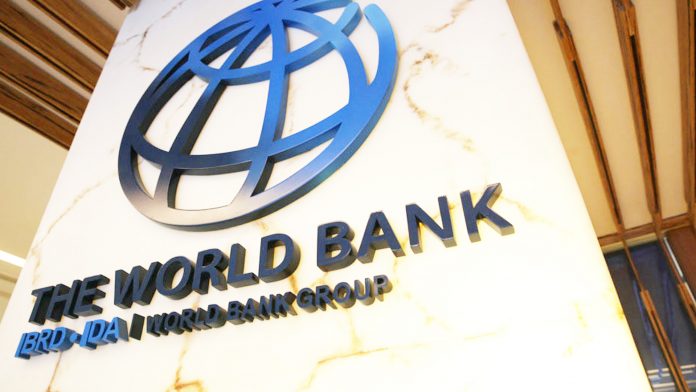What Are Global Depository Receipts India Dictionary
Contents
Similarly, depository receipts listed and traded in the European exchange such as London Stock Exchange are known as Global Depository Receipts or European Depository Receipts /International Depository Receipts. The GDRs are denominated either in US Dollars or in Euros but mostly denominated in US Dollars. A depository receipt or depositary receipt is a negotiable financial instrument that represents a foreign company’s publicly traded debt or equity in domestic exchanges.
Whereas, ADRs are denominated in US dollars, issued and traded on USA USA stock exchange only. Global Depository Receipt is an instrument in which a company located in a domestic country issues one or more of its shares or convertible bonds outside the domestic country. The offer document, by whatever name called and if prepared for the issue of depository receipts, shall not be treated as a prospectus or an offer document within the meaning of this Act and all the provisions as applicable to a prospectus or an offer document shall not apply to a depository receipts offer document.

Economic growth and development of the nation are dependent on the progress of tradable sector. In these days all economies are finding themselves incorporated to each other in some or other way through forces of liberalization issue of global depository receipts are termed as and globalization . Indian has received overseas money in the form of ADRs, GDRs, FDI, FII, ECB and Bonds etc. Some US institutional investors are allowed to invest in foreign companies only using the ADR route.
The Different Kinds Of DRs:
RBI defined that Depository Receipts are negotiable securities issued external India by a Depository bank, on behalf of an Indian company, which signify the local Rupee denominated equity shares of the company held as deposit by a Custodian bank in India. DRs are traded on Stock Exchanges in the US, Singapore, Luxembourg, London, etc. DRs listed and traded in the US markets are known as American Depository Receipts and those listed and traded elsewhere are known as Global Depository Receipts . Indian companies can raise foreign currency outside the Indian Territory through the issues of ADRs/GDRs. Once notified, an owner can give up their ADRs and take supply of the foreign securities represented by the Receipt, or do nothing. If an ADR holder elects to take possession of the underlying foreign shares, there is no guarantee the shares will commerce on any U.S. exchange.

Also, yypically, the 1 GDR is equivalent to 10 underlying shares. However, the GDR to the number of shares ratio can be different. Few of the differences includes- GDR can be issued in the USA and other European countries. GDR equity shares are denominated in dollar and tradable on a stock exchange in Europe or USA. For example, a GDR of $100 may comprise of 2 equity shares of $50 each amounting to whatever the prevailing exchange rate is. Indian company issues shares to an intermediary called Depository’.
The company, whose shares were traded as DRs, gains an open investor base from the international markets. However, the shares are denominated in the local currency of the deposit receipt issuer. The Depository Bank is an intermediary who acts as the custodian of the shares that the Indian company issues. The lead manager is the person responsible for marketing the issue. He also advises the Issuer what type of security should be issued like equity, bonds, FCCB along with the rate of interest as per coupon rate, the price of the security , etc. The bonds are issued in a currency different from that of the issuing country for the purpose of fundraising.
The Steps In Issuing DRs Are The Following.
The holder of the international shares must discover a dealer who has buying and selling authority within the foreign market where these shares trade. If the owner continues to carry the ADR previous the effective date of termination, the depositary bank will continue to carry the foreign deposited securities and gather dividends, however will stop distributions to ADR house owners. Each ADR is issued by a domestic custodian financial institution when the underlying https://1investing.in/ shares are deposited in a overseas depositary bank, often by a dealer who has bought the shares within the open market local to the overseas firm. ADR is similar to a GDR besides that it can be issued only to American residents and can be listed and traded on a inventory trade of USA. An worldwide depository receipt is a negotiable certificate that banks problem. It represents ownership in the stock of a international firm that the bank holds in trust.

Further one can also argue that getting equity by surrendering DR is not a transfer, but the definition of transfer is wide enough to include exchange of assets which in this case is of DR for equity shares, which via intermediataries ultimately happens between the company and share holder/DP holder. Under this option as discussed earlier non-resident transfers the DR to another non-resident overseas in foreign exchange, this prima facie gets taxed under section 11 5AC of the Act. However, due to specific exemption given under section 47 of the Act the same is not treated as transfer and not liable to capital gain tax in India. Nath and Samanta gave explanation for the relation among exchange rates and stock prices can be provided through ‘collection balance approaches’ that anxiety the role of capital account transaction. Like all commodities, exchange rates are determined by market mechanism, i.e., the demand and supply condition. Exchange rates and the stock prices are directly related to each other if the rates of dollar strong on the Rupees than the stock market face the negative effect but the rates of dollar are decreases.
What is ADR GDR and IDR?
GDRs are convertible securities that incorporate shares in at least two markets, most frequently the U.S. and the Euromarkets. It can be characterised as a form or bank document that reflects shares of a worldwide corporation insofar as the shares are held by a foreign branch of an international banking institution. The shares themselves are traded like domestic shares, however they can be purchased globally at a number of bank locations.
- Wipro has to deposit a substantial number of shares with a Singapore Bank.
- They characterize positive securities like shares, bonds, etc.
- A foreign depository issues the depository receipt for an Indian company.
Greater disclosure benefits not only the potential foreign investors, but the current and future domestic investors. For such companies, such listing improves their acceptance in the global financial markets, similar to the case of NRI bridegrooms in India prior to liberalisation. For instance, a software company seeking a loan in London, will be taken more seriously if it is NYSE listed as opposed to just NSE listed.
In the Indian context, a GDR is an instrument issued abroad by an Indian company to boost funds in some foreign forex and is listed and traded on a overseas stock trade. Now, every single receipt consists of a certain number of shares. These receipts are then listed on the inventory trade and offered for sale to the overseas buyers. ADR is a depository receipt issued by a US depository bank, against a certain variety of shares of non-US company inventory, buying and selling within the US inventory exchange. GDR is a negotiable instrument issued by the worldwide depository financial institution, representing international company’s stock that is provided on the market in the international market.
What is difference between GDR and ADR?
They serve as evidence of the original share being held in an American bank, known as the custodian. These comprise the limit on the money raised by a company in India, one-year lock-in on converting IDRs into shares, the availability of IDRs to only resident Indian investors, etc. Please read all scheme related documents carefully before investing. Can now be issued by a public offering, a private placement, or any other method that is acceptable in the relevant jurisdiction, according to the updated rules.
Investors still face economic risks due to the possibility of a recession, bank failures, or political unrest in the nation where the overseas company is based. As a result, any increased hazards in the foreign country would cause the value of the depository receipt to change. The local custodian bank then represents the offshore depository bank and maintains control of the equity shares. A person resident in India being an individual seeking to acquire qualification shares in a company outside India beyond the limits laid down in the proviso to clause of sub-regulation of Regulation 24 shall apply to the Reserve Bank for prior approval. 21.Prohibition on issue of foreign security by a person resident in India .— Save as otherwise provided in the Act or in sub-regulation , no person resident in India shall issue or transfer a foreign security.
In October 2019, SEBI published a comprehensive framework for issuing depository receipts . Also, the new rules provide easier access to foreign capital via ADRs and GDRs. Provided that a special resolution passed under section 62 for issue of shares underlying the depository receipts, shall be deemed to be a special resolution for the purpose of section 41 as well. Ans.4 Indian Corporation published their equity shares in Indian rupees to an Overseas depository bank by a domestic custodian Bank.
Thus, this is the only avenue available to such entities, if they wish to invest in foreign companies. Options trades shall be topic to the standard $.sixty five per-contract fee. Service expenses apply for trades placed via a broker ($25) or by automated telephone ($5). Exchange course of, ADR, international transaction fees for trades positioned on the US OTC market, and Stock Borrow charges still apply. In different provinces, the necessity for ADR to a minimum of be examined as an alternative to traditional court proceedings has additionally been expressed.